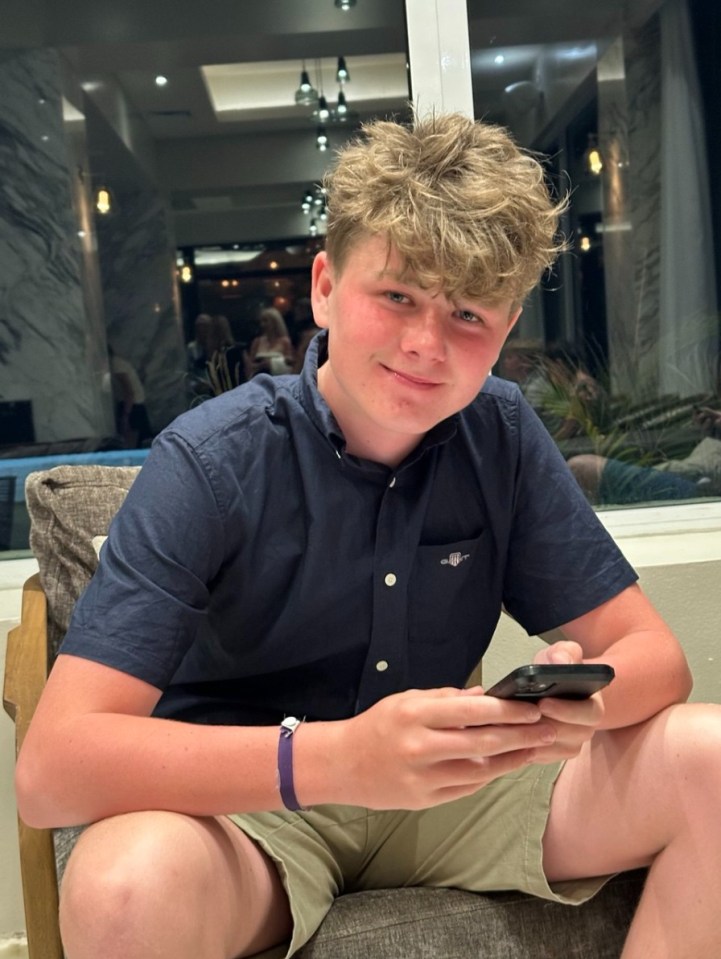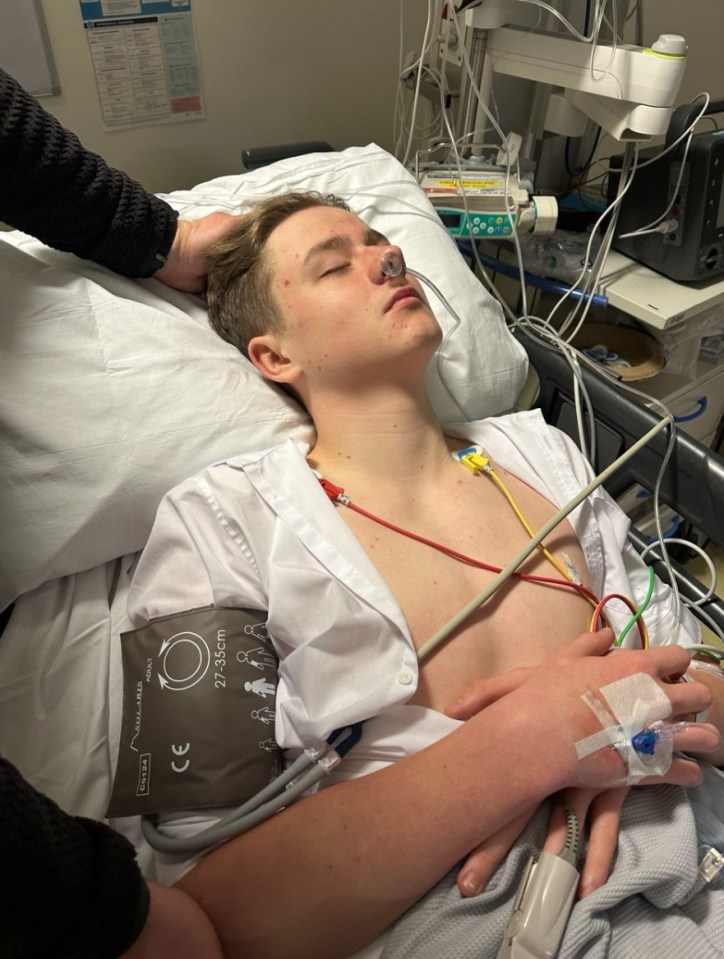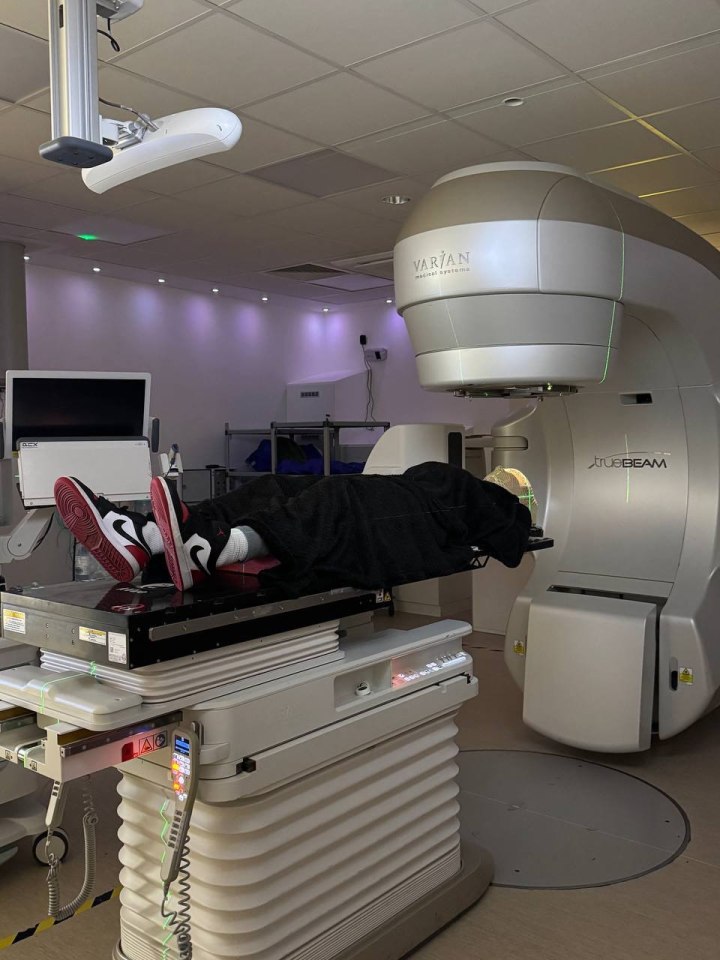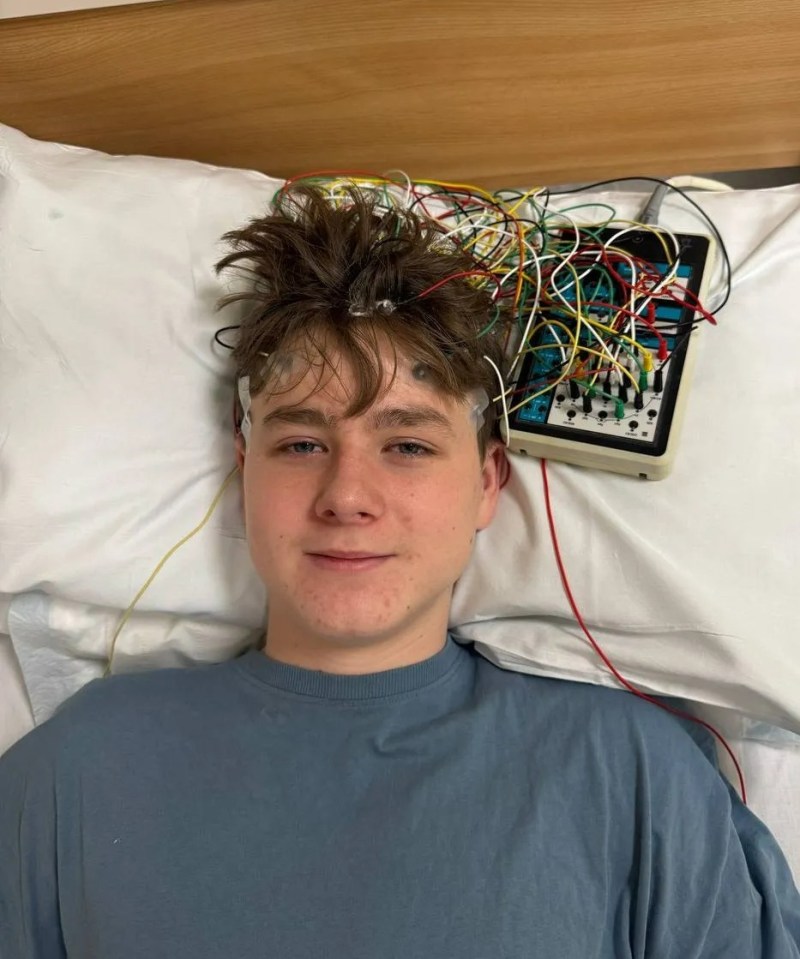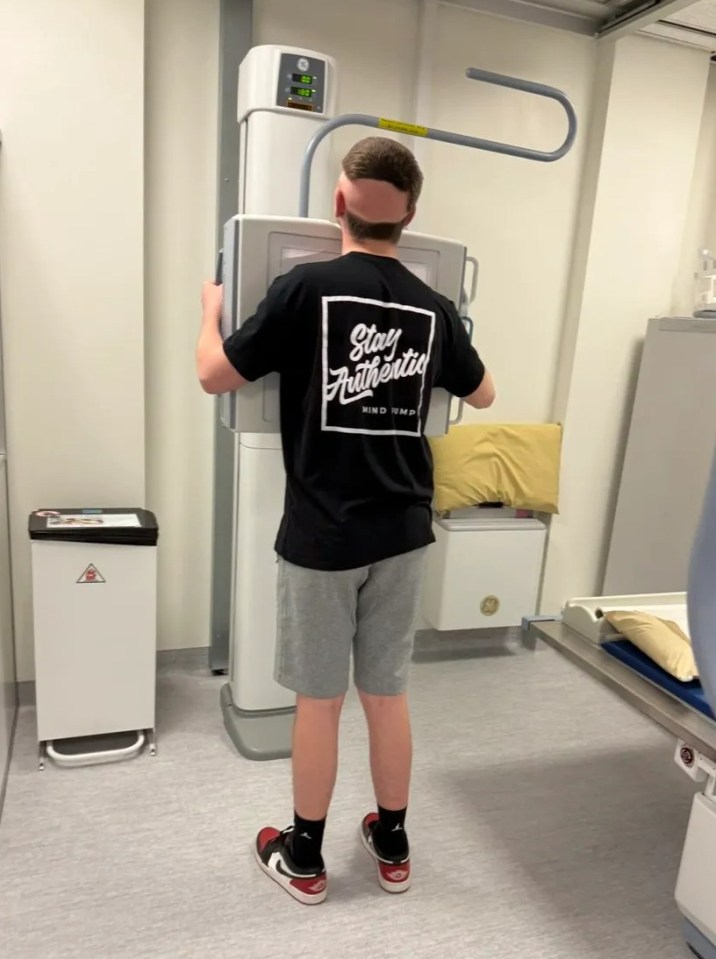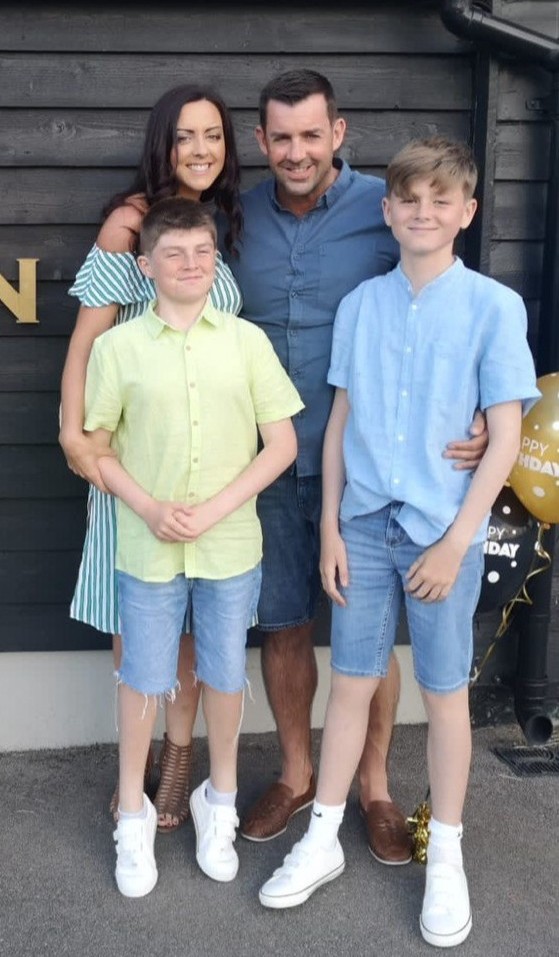WHEN Callum Stone’s parents were called to pick him up from school with a headache, they never imagined it would result in a life-altering diagnosis.
“He wasn’t coming across as normal,” his step-dad, Mark Ferris, 42, recalled about the fateful day.
“He told me quite loudly in reception at school he loved me but he wasn’t getting his words out quite right,” he added.
Mark decided to take the 15-year-old to A&E at Broomfield Hospital in Chelmsford, Essex, on January 20, 2025, but he suffered three seizures along the way.
Callum spent one week at the hospital where a series of tests were carried out.
This included a lumbar puncture, a CT scan and an MRI scan – the latter of which showed slight inflammation on his brain.
Read more on brain tumours
“Although they were concerned, they thought it might be a viral infection,” his mum Sarah Ferris, 41, said.
She said he was later discharged with anti-seizure medication and she felt things were “back to normal”.
Due to Callum’s age, he was also put under the care of Great Ormond Street Hospital for Children (Gosh) in London.
He underwent a biopsy on the mass on February 5.
Most read in Health
And just a few days later, on February 11, the family were informed he had a diffuse grade four glioma a type of cancerous tumour which starts in the brain.
Doctors said it was is growing “like a cobweb”, making it impossible to operate.
Sarah and Mark travelled to Gosh to receive the news, which they later delivered to Callum at home together.
“It was shattering,” Sarah said.
“In a matter of hours, our world has just completely been thrown upside down but a few months ago, we were just a normal family.”
She added: “It’s inoperable, it grows like a cobweb so they would need to take away too much of the healthy cells.
“It’s quite hard to explain something like that to a child and his brother.”
Mark said Callum was more concerned about his family members when they delivered the news, saying he “smiled and hugged us”.
On February 14, the family travelled to University College Hospital in London where Callum later received six weeks of daily radiotherapy from February 24.
He completed the course on April 4 and he will receive an MRI scan on May 5 to see how the tumour has responded to the treatment.
“He’s gone from being a boy who has never been sick to taking so many different tablets and being in hospital,” Sarah said.
“There are times away from the kids where you didn’t think you could ever cry so hard but as soon as you see them, you want to start planning things, going out and seeing friends, family.
“They make it easier to get through the days.”
‘Keep telling lots of jokes’
Callum, who his parents described as “sporty” has been concentrating on his fitness regime and his diet to remain healthy.
“Starting off, it was a bit hard and I was a bit moody and quiet,” he said.”but I’ve been feeling better lately,” the schoolboy said.
“Eating well and exercising actually makes you feel a lot better and I’ve been walking the dog, riding my bike and going out to the gym,” he explained.
“To others in my position, I’d say go out for walks with your family and keep telling lots of jokes.”
The family have launched a GoFundMe page to raise money to explore alternative cancer treatments abroad.
Callum will start ongoing chemotherapy treatment in tablet form next month, but Sarah said “for his type of tumour, there are no other treatment options for him on the NHS really”.
“We’re starting to look abroad with things that are quite specific to his condition,” she added.
“There’s a clinic in Germany, there are some clinical trials for things similar to Callum’s in San Francisco, US.
“We’re just looking for other options, we’re looking everywhere.”
Read More on The Sun
Their fundraiser has gained more than £50,000 so far, and Mark said it has been “emotional”, “lovely” and “overwhelming” to see the donations come in.
Sarah added: “It’s really just to let people know that we’re trying to find other options for him and this will be his best chance, but obviously that comes at a massive cost.”
The most common symptoms of a brain tumour

More than 12,000 Brits are diagnosed with a primary brain tumour every year — of which around half are cancerous — with 5,300 losing their lives.
The disease is the most deadly cancer in children and adults aged under 40, according to the Brain Tumour Charity.
Brain tumours reduce life expectancies by an average of 27 years, with just 12 per cent of adults surviving five years after diagnosis.
There are two main types, with non-cancerous benign tumours growing more slowly and being less likely to return after treatment.
Cancerous malignant brain tumours can either start in the brain or spread there from elsewhere in the body and are more likely to return.
Brain tumours can cause headaches, seizures, nausea, vomiting and memory problems, according to the NHS.
They can also lead to changes in personality weakness or paralysis on one side of the problem and problems with speech or vision.
The nine most common symptoms are:
- Headaches
- Seizures
- Feeling sick
- Being sick
- Memory problems
- Change in personality
- Weakness or paralysis on one side of the body
- Vision problems
- Speech problems
If you are suffering any of these symptoms, particularly a headache that feels different from the ones you normally get, you should visit your GP.
Source: NHS

